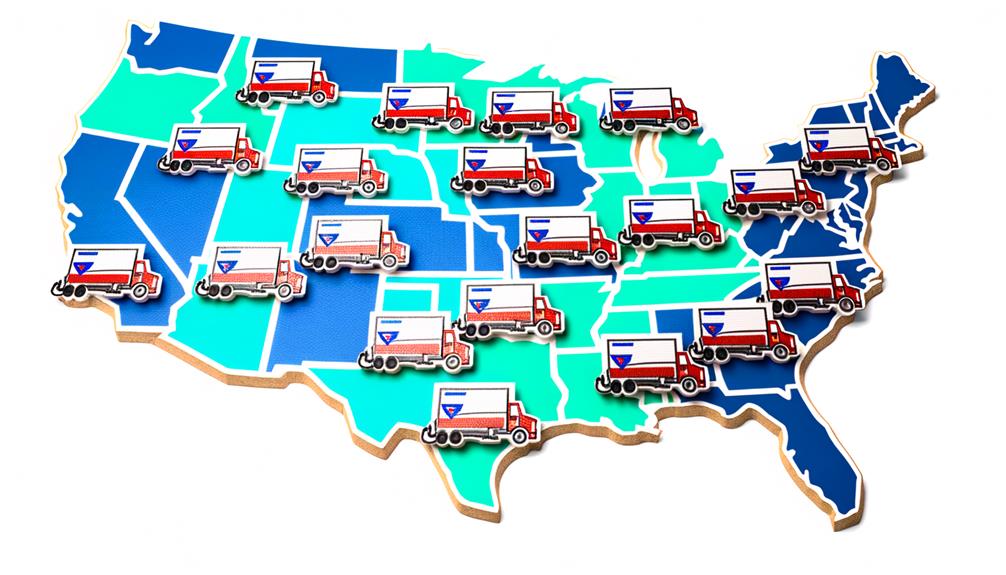The idea of working from anywhere has taken the world by storm over the past couple of years and for good reason. Remote work not only allows for greater flexibility and work-life balance but also enables professionals to explore new places while maintaining a high level of productivity.
One way to combine work and travel is by taking a workation, which is essentially a vacation where you work remotely. Planning your first workation can be a bit daunting, but with the right preparation and mindset, it can be an incredible experience.
First off, what is a workation?
A workation is a working vacation in which an employee continues working while away from their home office. The location, the working hours, and the length of the stay are all up to you.
Why should you try a workation?
You don’t burn vacation days
You won’t need to ask for paid time off from work because you’ll keep working where you’ve moved. However, you are still free to take vacation days while on work leave. For instance, if you were to take a two-month work vacation, you could take a few days to enjoy the location and work remotely the rest of the time.
You can get a motivation boost
Maybe you just need to take a few weeks off of your normal routine. Or you’re craving additional time at your ideal location – maybe the beach? Both scenarios are possible with a workation, which can also improve your work-life balance, job satisfaction, and overall motivation.
You can take more trips
You get to travel for longer periods of time and can experience more of the world. You can opt for a few workations during the year or plan one 6-month long trip. The best part is that you will have an income while traveling as you’ll be working, so money won’t be as much of a concern.
Planning your first workation
1. Determine the logistics
Make sure you understand your company policies and general remote work rules. Do they ever ask you to come into the office on a whim? Do they need to know your location? Will your work computer function in another country or state? This is not an issue if you work for yourself, but there are still some restrictions. For instance, it might be important to be in a certain time zone for employee or client meetings.
Check the destination’s visa requirements if you’re traveling internationally, and apply for a visa if necessary.
2. Select your destination
Next up? Choose your destination! This is where the fun really beings. While it can be tempting to pick a place that is purely for vacation, it is important to keep in mind that you will be working during your trip. Consider a location that offers both work-friendly amenities and attractions that you would like to visit in your free time.
When selecting a destination, make sure you understand the cost of living, internet connectivity, and time zone differences. It is also vital to research the local culture and customs to ensure that you are respectful and mindful of your surroundings.
3. Find your accommodations
Once you have chosen your destination, it is time to plan your accommodations. Depending on the length of your workation, you may want to consider renting a furnished apartment or a short-term rental. Some accommodations are designed specifically for workations, and include an equipped home office setup and high-speed internet. They offer more space and amenities than a hotel room, too, which can help make your workation more comfortable and productive.
4. Set Your Schedule
One of the benefits of remote work is the ability to create your own schedule. However, when planning a workation, it is important to set a schedule that balances work and leisure activities. Define your work hours and stick to them, and then arrange your leisure activities around them.
It can be helpful to plan some of your off-work activities in advance, so you can make the most of your free time. However, be open to exploring your destination with a bit of spontaneity so you can take part in local events or opportunities that arise.
5. Pack Strategically
When packing for your workation, be strategic. Look into the weather and climate of your destination during the time you’ll be there, as well as activities want to do outside of work. Bring clothes that can be worn for both work and leisure activities, as well as comfortable shoes for walking or hiking.
And remember to pack all of your work essentials, such as your laptop, charger, work documents, or paper files. A portable charger or power bank can be really handy too, in case you need to work on the go. If you want to pack ultra-light, consider renting an apartment with a work desk and office equipment – you’ll just need to bring your laptop.
6. Stay Connected
Staying connected is essential when working remotely. Before you leave for your workation, ensure that you have a reliable internet connection and any necessary tools or software for work. It may also be helpful to set up a virtual private network (VPN) to ensure that your internet connection is secure.
Depending on the location chosen, it might be wise to communicate with your team or manager about your availability and any potential time zone differences. Set expectations for communication and response times, so that everyone is on the same page.
7. Plan what you’ll do when you get there
You made a destination decision, located lodging, packed your belongings, and traveled there. Since airports are frequently filled with tourist traps, you might want to check how to get to your accommodation from the airport before arriving.
Find out if your internet will function at your location if you are traveling abroad. If not, getting a local SIM card and getting a map app can be helpful.
8. Schedule each day
After you have arrived and settled in, you can schedule your days for both work and travel. If you intend to work from home, you might arrange your workspace in a practical area. You can also choose an accommodation that includes an equipped home office set up,
You can look up the locations of coworking spaces if you want to interact and get to know other remote workers.
When your workday is over, what are your plans? Depending on where you’re going, the answer to this question will vary. You might visit the beach in Bali. You may visit a brewery in Prague to sample the local brews. In Chiang Mai, you can sample the local cuisine. The list keeps on.
9. Take Care of Yourself
Lastly, it is important to take care of yourself during your workation! Remote work can often lead to burnout, so it is important to prioritize self-care and relaxation. Take breaks throughout the day to stretch or go for a walk, and be sure to take time off for leisure activities.
Additionally, be mindful of your work-life balance and set boundaries for when you are working and when you are not. This can help prevent burnout and ensure that you are able to enjoy your work.
You’re now ready for your first workation
No matter where you end up going for your first workation, you will certainly create wonderful memories while making the most of traveling and working at the same time.
If you have more remote work gear than you can carry, consider Anyplace. All accommodations include an equipped office setup built for workations, with a height-adjustable standing desk, ergonomic chair, ultra-widescreen monitor, wireless keyboard and mouse, docking station, and more.










